18-year-old Aaron Cosar stood cursing at his father's fresh grave site, a bottle of vodka in his hand.
"You weren’t supposed to die!" he yelled. "You were supposed to help me get off this crap!"
But Aaron wouldn't be set free of his addiction until another death had occurred—one by his own hand.
AN AWKWARD PHOTO AND A FATEFUL NIGHT
Aaron had taken his first sip of vodka when he was 9. He was kicked out of high school for being intoxicated on school grounds. When he was 17, he got drunk and assaulted his father in their front yard while his siblings watched through the screen door. From then on, Aaron says, his relationship with his father was never the same.
The day before Aaron's dad died, he came to visit Aaron at a juvenile detention center where he was being held for theft. Although Aaron wasn't in the mood to smile for a camera, his dad insisted that his mom snap their photo. His father was a faithful provider and church deacon who read his Bible daily—but he never said "I love you" or attended Aaron’s football games. Aaron felt rejected. And his dad was deeply distressed by his son's destructive choices.
After his father's death, Aaron's downward spiral accelerated. He got into fights and sold cocaine and stolen firearms to fund his addiction to drugs and alcohol.
"Did I want something better?" Aaron asks. "I'm sure I did. But when all I had known was just to drink and use drugs, I had no other vision."
When Aaron was 19, after a night of bar hopping and dropping acid, he ended up at the home of a man who mentioned owning guns. Aaron decided to steal one. As Aaron was about to leave, the man approached his car. Aaron fired the stolen gun, killing the man—and forever changing his own life.
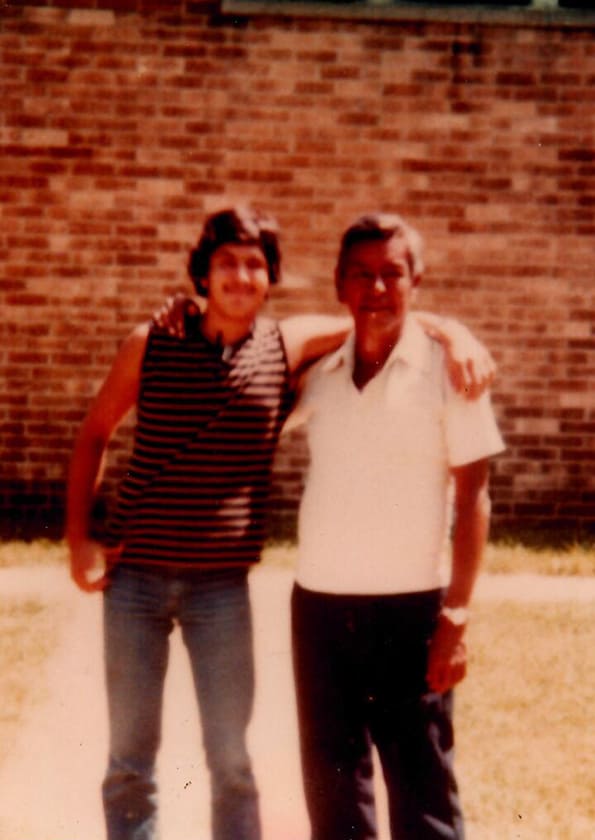
'Did I want something better? I'm sure I did. But when all I had known was just to drink and use drugs, I had no other vision.'
EVENTUAL SURRENDER
Aaron was sentenced to life in prison at Joseph Harp Correctional Center. For the early years of his sentence, he walked in familiar patterns, breaking rules by selling contraband to other prisoners to support his drug habit. He heard—and even agreed with—the words of the Christians who came to share the love of Jesus. Still, he resisted giving everything over to God.
God used two moments in time to capture Aaron's attention. Aaron had told his two young sons that he would do all he could to come home. But in reality, he had been fighting in the yard—an infraction that works against early release. One day, he was deeply struck by the awareness that he had been lying. He no longer wanted to be the kind of man who would deceive his children.
Another day, while walking on the ballfield, Aaron considered a new "opportunity."
"I was going to start running drugs in the [prison] system," he says. "The Holy Spirit said these very words to me, as I'm plotting in my mind. I'll never forget this. He said, 'The choice you make today will be the one you die with.'"
In that moment, Aaron knew he had heard God. He also knew he didn't want to die in prison. He entered a drug treatment program and joined a Prison Fellowship® Bible study, learning all he could about God. He eventually became a chaplain’s clerk, a role he held for 15 years.
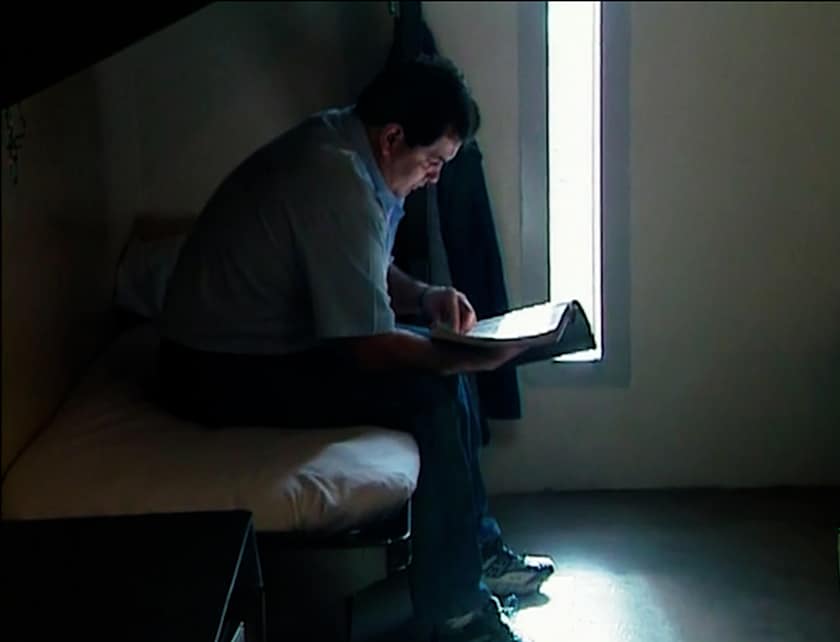
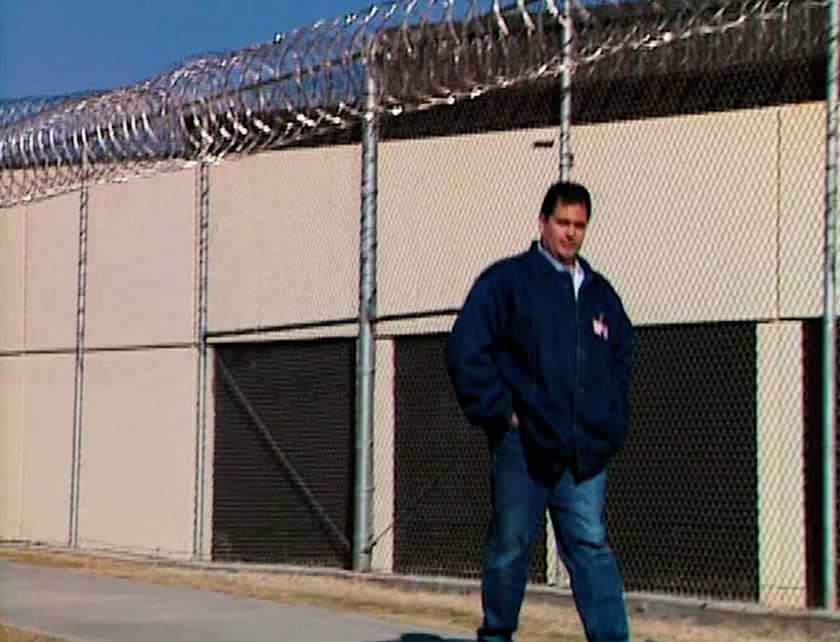
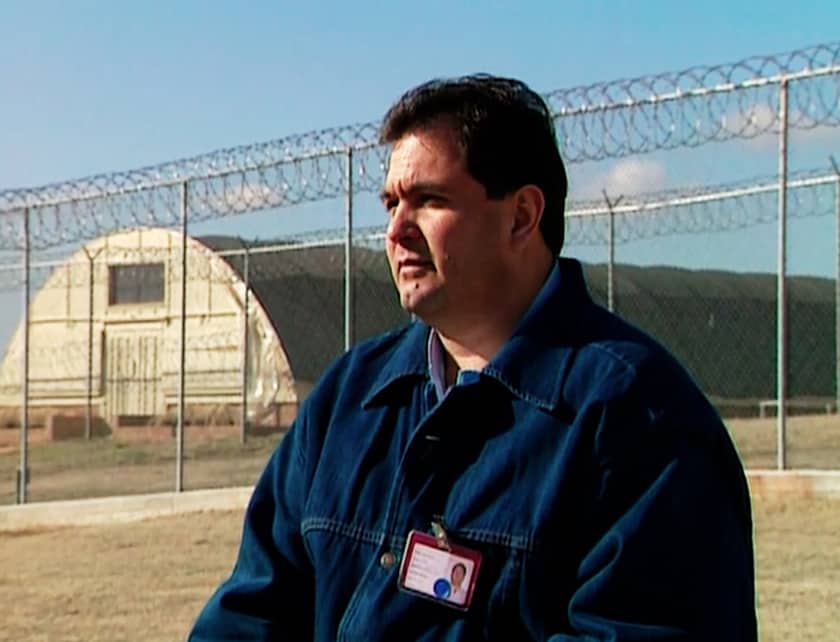
'The Holy Spirit said these very words to me ... 'The choice you make today will be the one you die with.''
A NEW CALLING
Throughout his stay in prison, Aaron kept that photo his mom had taken long ago. One day, a rehabilitation treatment specialist asked him about his father, and then she commented, "Did you ever think that God gave you that picture with your dad so that you would know that your dad was saying he was OK with you?"
Aaron broke down. He had never considered that his dad's desire to have their photo taken together spoke of love and forgiveness.
"That was enough to forgive myself," Aaron recalls, wiping away tears.
Aaron even found love while in prison. He and Justeen met when she came to visit a friend’s husband. To her surprise, God impressed on Justeen's heart that Aaron was to be her husband, and she began writing letters to him. They fell in love and married, enduring six parole denials and 13 years apart before he was released on Nov. 17, 2010. Aaron's sentence had been commuted to 65 years by the governor of Oklahoma, and he was released after 25.
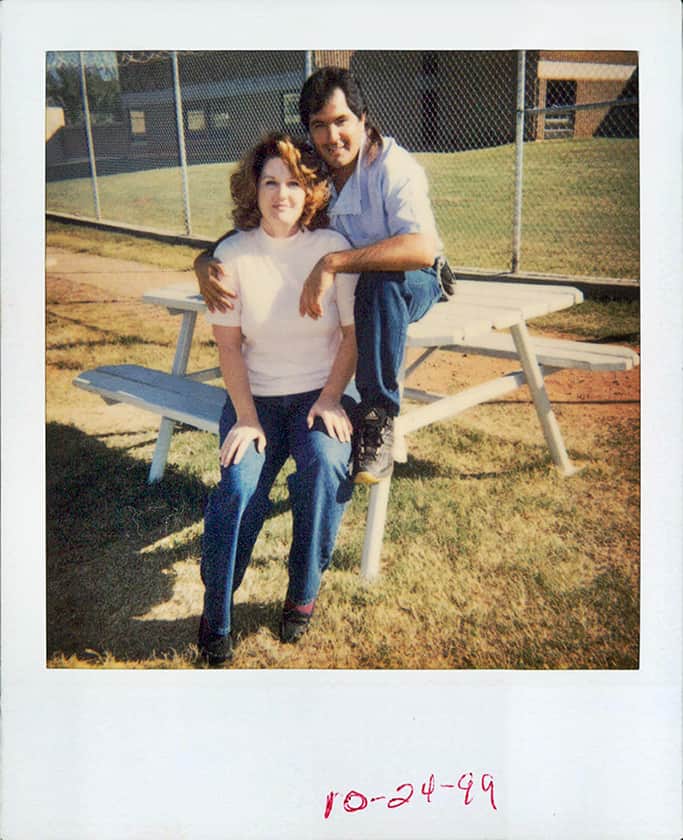
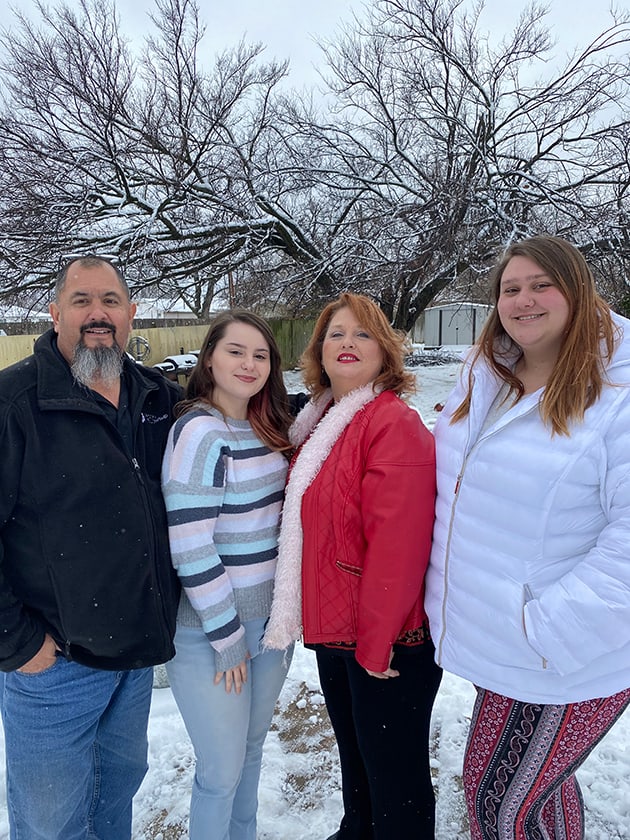
Justeen and Aaron fell in love and married, enduring six parole denials and 13 years apart before he was released.
CARRYING ON A LEGACY OF LOVE
Now, at 55, the once lost and angry young man has a sense of purpose in his life. Aaron works full-time as a Prison Fellowship Academy® program manager at the Lexington Assessment and Reception Center in Lexington, Oklahoma. The Academy is a year-long program designed to disrupt the cycle of brokenness that lands men and women in prison. In his role as program manager, Aaron guides participants through a curriculum designed to replace criminal thinking and behaviors with a renewed purpose and biblically based life principles. He also works one-on-one with prisoners to help them explore their own stories and receive healing from God.
"My favorite part of my job is giving my heart to the guys, telling them it's going to be all right and to keep hope alive," Aaron says.
One way that Aaron fosters hope is by facilitating relational healing. He shares that many of the men he ministers to have unresolved issues with their fathers just like he did. Recently, Aaron encouraged a young man to call his dying dad. The man was reluctant, given his father's history of abusive treatment, until Aaron shared his own story of loss and regret. The prisoner made the call. Afterward, he was grateful for the chance to express forgiveness and release his burden.
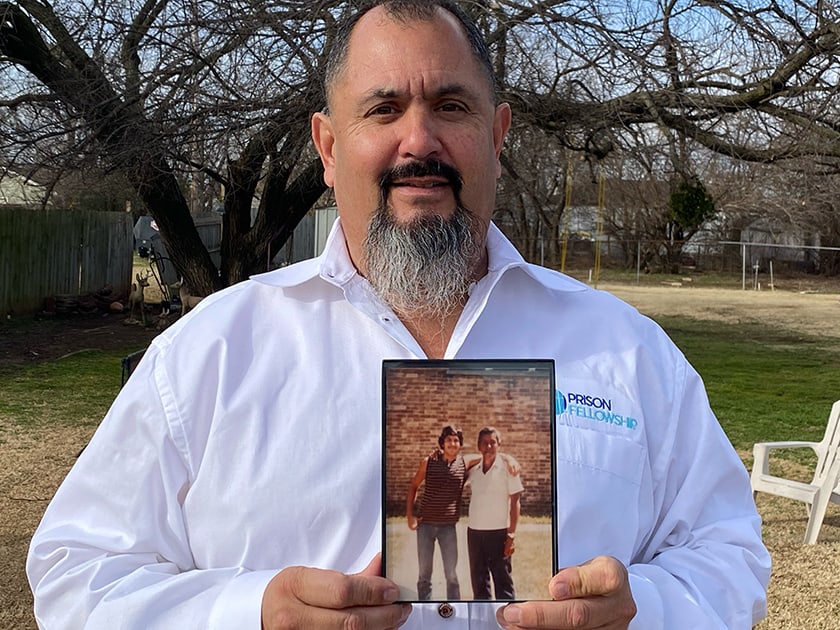
'My favorite part of my job is giving my heart to the guys, telling them it's going to be all right and to keep hope alive.'
IN HIS FATHER'S FOOTSTEPS
At the time of his father's death, the church deacons presented Aaron with a cane representing his father's legacy of godly service. They said to Aaron, "You know what your responsibilities are," meaning to carry on in his father's footsteps.
Aaron wasn't ready at the time, but 37 years later, he is doing just that. Following his release from prison, that keepsake was one of the first things Aaron retrieved. And the photo from the juvenile detention center hangs by the front door of his home, the last thing Aaron sees before he goes out to serve Christ each day.
"This is what I watched my dad do—go to churches, go visit somebody in the hospital," Aaron says. "Here I am. I'm out now and doing the same thing. So, I'm a lot like my dad, and I'm proud of that."
'I'm a lot like my dad, and I'm proud of that.'